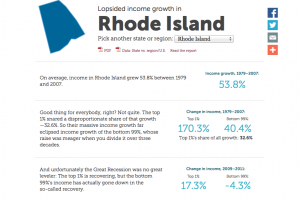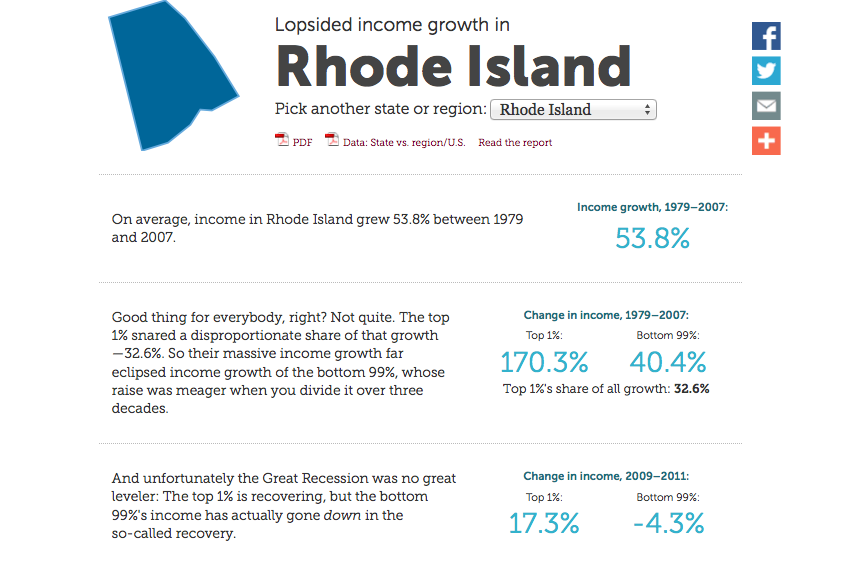 Two Ways to Destroy “Occupy Wall Street”
Two Ways to Destroy “Occupy Wall Street”
As somebody’s momma once said, “the best thing you can do is show up.” This has been happening all over the country since a group of folks decided to head down to that bull on Wall Street and call out to stop the bullshit. This is not a report on “OWS,” it is an insight on the historical demolition of popular movements.
Divide and Conquer
The classic method of the powerful to distract the masses is to get them to fight amongst themselves. The easiest one is via racism, and the other is class warfare pitting the Middle Class vs. Lower Class. America’s long struggle with racism needs no extra lesson here, but one can see the tensions within OWS, and it is guaranteed that the Koch Brothers of the world, the Rupert Murdochs, with all their corporate and media power, will find every crack to expand.
The powerful have often inserted rabble rousers in the midst of the protest class, to pose as one, and to stir up internal strife. This was done in the early Labor movement and overwhelmingly in the Civil Rights era. Many a Native American activist has remarked about how there were times that the undercover agents outnumbered the activists. They have been known to be the one who turned a peaceful protest violent, or manipulated factions against each other. Will the current Occupiers be on guard for this?
Before continuing, let me add a disclaimer: I don’t speak on behalf of any ethnic or political group, nor organization, nor ideology. I’m just one independent thinker.
I’ve seen various reports of racial tensions on the front lines of these actions and in the planning committees. I read and hear about them with the expectations that the opposition will exploit them, and may have had a hand in manufacturing them. It is worth noting that a true Popular Movement, one widespread enough to change a culture, thereby enacting political and economic change, will not have a corporate vertical structure. Those who see the Occupy actions as opportunities to craft a single agreed upon message will doom the actions. Those who are coming from Top-Down organizational structures, and wish to implement them more broadly, will suffocate the movement.
The 1% knows how to fight an army with a vanguard of leadership, it does not know how to deal with a hydra, or a million hydras. It is not unexpected that many activists in a Movement are not directly affected, and it is typical that solidarity members can gravitate towards leadership roles if they have good communication skills. These people are often referred to as “White Liberals,” but defining the affected class in an economic movement is not so simple as to break it into racial demographics. If the result of such a “Black and White” view were to exclude poor and working class White people, a popular Movement is dead in its tracks. Ultimately, the majority of America is poor and working class White people. If a bulk of that group is convinced to wave the American flag and believe protesting political policies is being “un-American”, then it is over.
The 1% stands on the backs of poor and working class Whites. They also stand on the backs of middle class Whites and People of Color, who believe assimilation and accommodation are the path to prosperity for their families. The 1% has convinced a bulk of those groups that their stability is connected to standing on the necks of others. And this connects with the second method of destroying OWS:
Pay the Protesters
Professional advocates can become beholden to their funders- be they government, corporate, or foundations. Often, that funding is for the affects of an economic and political system that created this all-too-predictable financial crisis. The funding typically is explicit in barring advocacy for structural change. The pay-off will go to anyone who will take it, but generally the first offers go to those who appear to have credibility; sometimes that will be People of Color, and other times it will be White Liberals. Someone to carry the water and be highlighted as a “responsible” leader of these people, and a commission is formed, and the new activists are told to go home so the chosen leaders can advocate on their behalf. This is not so difficult to do when a movement looks more like an organization, and structured with a top-down approach (even if the top looks like the consensus of a small group).
What to Do?
People need to keep showing up. Show up with a cacophony of voices, with ALL their issues. Whether the issue is foreclosure, unemployment, civil rights, or something else, it is all tied into the structure of consolidated wealth that uses the government to protect this wealth. In an uncertain feudal society, the King needs his lords and barons to protect him. The nobility, in turn, needs their sheriffs, soldiers, and tax collectors to keep the serfs in line. It is cheaper for them to hire more sheriffs and build more prisons than for their economic system to be modified.
Why is there never any discussion of automated technology leading to unemployment? Because it is more Divisive to have working class Whites railing against Latino landscapers and in the streets about Voter ID, Secure Communities, and funding immigrant detention prisons. In truth, there are so few skilled blue collar jobs in America for two primary reasons: (1) machines replaced humans (more profit for shareholders), and (2) companies moved businesses overseas after bipartisan pushes to change international laws (such as NAFTA).
The most un-American people in America are those who do not care about employing Americans, and would rather make another million via machine or cheap Chinese labor. Even more un-American would be to take these profits and invest them outside of America, and then call on the American taxpayers to bail them out, or protect their economic interests in other countries. Will mayors reign in police, or will riot gear be the new standard gear for every patrolman? How many will be arrested? Will the police themselves question their orders? Few scenes so far have encapsulated OWS than a NY Marine yelling at the NYPD, asking why they are in full riot gear and attacking unarmed civilians engaging in their 1st Amendment rights.
Why should multi-national corporations that do nothing for the common good in America receive favored status? Why should a nation that proclaims an adherence to “market forces” bail out those who played and lost?
The bipartisan bailout followed the bipartisan deregulation that caused it. For every action, there is a reaction. Bush and Obama, Dems and Republicans, were all in position to respond to the economic debacles of the past few years. Rather than launch full scale investigations (Governors and Attorneys General included), they re-filled the empty pockets. This was the reaction in Washington, D.C., where millions upon millions of corporate money flows- both in campaign donations and public contracts. This was the greatest theft in modern history. And now people are legitimately rallying around this, as clearly it went too far: many Middle Class people are slowly acknowledging they are no longer in the club. For every action there is a reaction.
Is there an end game? Is it possible that the current economic system can employ another ten million people- or employ five million to incarcerate the other five million? Neither scenario looks likely. The latter is a bit more possible, but only if the 1% pay vastly more taxes, as the incarceration tab has come home to roost. Unless automation and foreign labor are drastically altered, there are simply not enough jobs in the current structure… and that is just presuming that shifting millions of jobs back home would not result in a catastrophe elsewhere.
Every day I walk down the street past bank-owned homes that are boarded up; past homeless people, and folks hanging out because they can’t find work. It makes me feel that the mayor of my city should be forced to sit on that curb until an idea pops in his head, one which involves blighted property and eminent domain. One which involves community development bloc grants. One which recognizes that the homeless lady and the unemployed guy are more important than any entity who would balloon a mortgage payment, evict an owner, and sit on a boarded up home collecting rats, overgrown with weeds… until someone buys the house for the land it is worth and demolishes the home. (after they collected the insurance money on the defaulted mortgage, so there is no loss).
It doesn’t matter what one looks like to see that things need to be stopped and shouted about. It just matters that one stops to look.



 Two Ways to Destroy “Occupy Wall Street”
Two Ways to Destroy “Occupy Wall Street” All citizens have a right to have their voices heard, and I, like the Occupy movement, am concerned about the causes and impacts of the most serious economic downturn in decades. This movement is important because our city, our state, our nation need to do much more to address the jobs and foreclosure crises which are crushing hope and opportunity for the 99% of us.
All citizens have a right to have their voices heard, and I, like the Occupy movement, am concerned about the causes and impacts of the most serious economic downturn in decades. This movement is important because our city, our state, our nation need to do much more to address the jobs and foreclosure crises which are crushing hope and opportunity for the 99% of us.